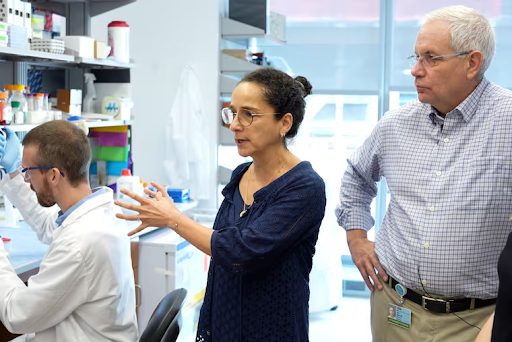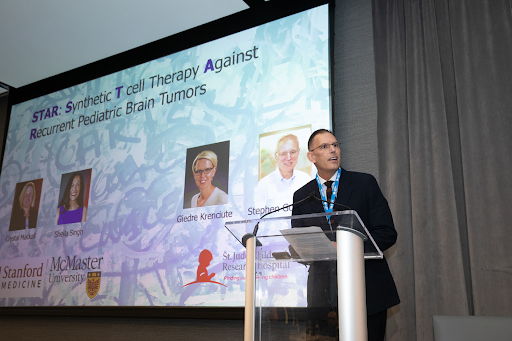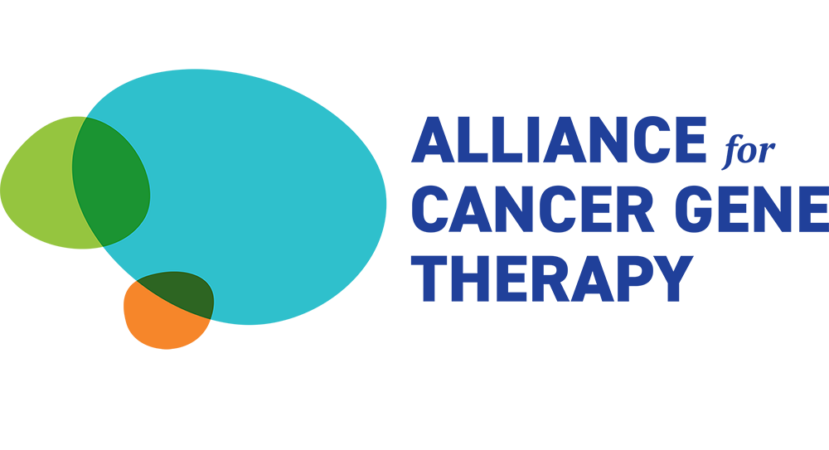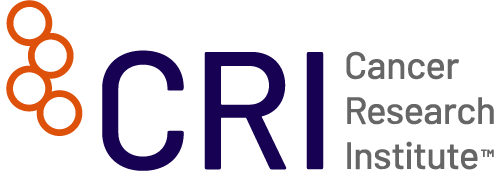Collaborations.
ACGT has expanded its thought-leadership and funding mechanisms – and increased its impact – by initiating new multi-institutional collaborations between academic research centers and biotechnology companies. There is enormous power in collaborating on the central objective – to create a cancer-free future. Why? Because the task is too large and too complicated for any one scientist, institution or biotech alone.
The ACGT – Barbara Netter Fund Collaboration Challenge Award.
The ACGT-Barbara Netter Fund Collaboration Challenge Award is a $1.5 million grant awarded to a high-impact, collaborative research project to advance cancer cell and gene therapies for patients with solid tumors. ACGT awarded two grants for research focusing on difficult-to-cure pediatric cancers. Each grant award required matching funds bringing the total invested in the program to $6 million dollars in total.
In 2024, ACGT awarded two grants for research focusing on difficult-to-cure pediatric cancers. Each grant award required matching funds bringing the total invested in the program to $6 million dollars in total.
ACGT-Barbara Netter Fund Collaboration Challenge Award to develop a “peptide-centric” CAR T-cell therapy for this pediatric cancer.

John Maris, MD, Yael Mossé, MD, Children’s Hospital of Pennsylvania
John Maris, MD in collaboration with Yael Mossé, MD, Stephan Grupp, MD, (Children’s Hospital of Philadelphia), and a biotech company, Hula Therapeutics, is developing cell and gene therapy for children with neuroblastoma. Neuroblastoma is a nerve cell cancer diagnosed in approximately 800 children in the U.S. each year. The collaboration is focused on accelerating the first PC-CAR to the clinic and performing a first-in-human, first-in-child Phase 1 clinical trial. In parallel, they will perform the IND enabling studies for a second PC-CAR trial. The long-term goal of the collaboration is to develop PC-CARs for many types of cancer. Learn more about this collaboration here.
ACGT-Barbara Netter Fund Collaboration Challenge Award to develop Synthetic T-cell therapy against recurrent pediatric brain tumors (STAR).

Kevin Honeycutt, President and CEO, ACGT announces the ACGT-Barbara Netter Collaboration Challenge Awards.
Stephen Gottschalk, MD (St. Jude Children’s Research Hospital), Crystal Mackall, MD (Stanford University), and Sheila Singh, MD, PhD (McMaster University Cancer Research Centre) are leading a multi-institutional collaboration titled “Synthetic T-cell therapy against recurrent pediatric brain tumors (STAR)” that focuses on the pediatric brain tumors medulloblastoma and ependymoma. The ACGT-Barbara Netter Fund Collaboration Challenge Award will support pre-clinical testing of a new T-cell therapy in preparation for a phase 1 clinical trial. Learn more about this collaboration here.
A powerful collaboration to advance cell therapy for brain cancer.



An ambitious collaboration between Alliance for Cancer Gene Therapy, Cancer Research Institute (CRI) and Parker Institute for Cancer Immunotherapy (PICI) is tackling the challenges of the deadliest brain cancer in adults – glioblastoma multiforme (GBM) – and accelerating cellular therapies to battle this complex disease.
Through Alliance for Cancer Gene Therapy’s three-year investment, the collaboration is starting to provide insights into what is happening within brain tumors such as: how immune cells like T cells, myeloid cells and macrophages are interacting with cancer cells; where they are within tumors; and if there are differences between these interactions for newly diagnosed patients, recurrent patients, adults and children.
The 562 tissue samples being studied are from children and adults and include samples of newly diagnosed and recurrent brain tumors and from patients who have received different types of therapies.
Using the most cutting-edge cellular analysis techniques the project is identifying patterns and providing new insights that will enable interpretation of the cancer biology and potentially be predictive of response or non-response to immunotherapy.
What is so special about Alliance for Cancer Gene Therapy is it’s creating a community,” Dr. Maris says. “I think creating that community around cell and gene therapy was the original vision, and we are delighted that childhood cancer research is a very firm part of this community.”
“The best way to describe this collaboration is that the whole is much greater than the sum of the parts. Good science like this is done as a team.” Sheila Singh, MD, PhD, McMaster University.
“This collaboration with PICI and CRI goes to the heart of the Alliance for Cancer Gene Therapy mission – addressing the toughest challenges in cancer research by enabling the best scientific minds to work together to significantly change the outlook for patients,” says Barbara Lavery, chief program officer at Alliance for Cancer Gene Therapy.
